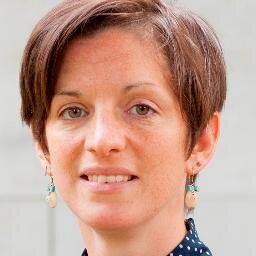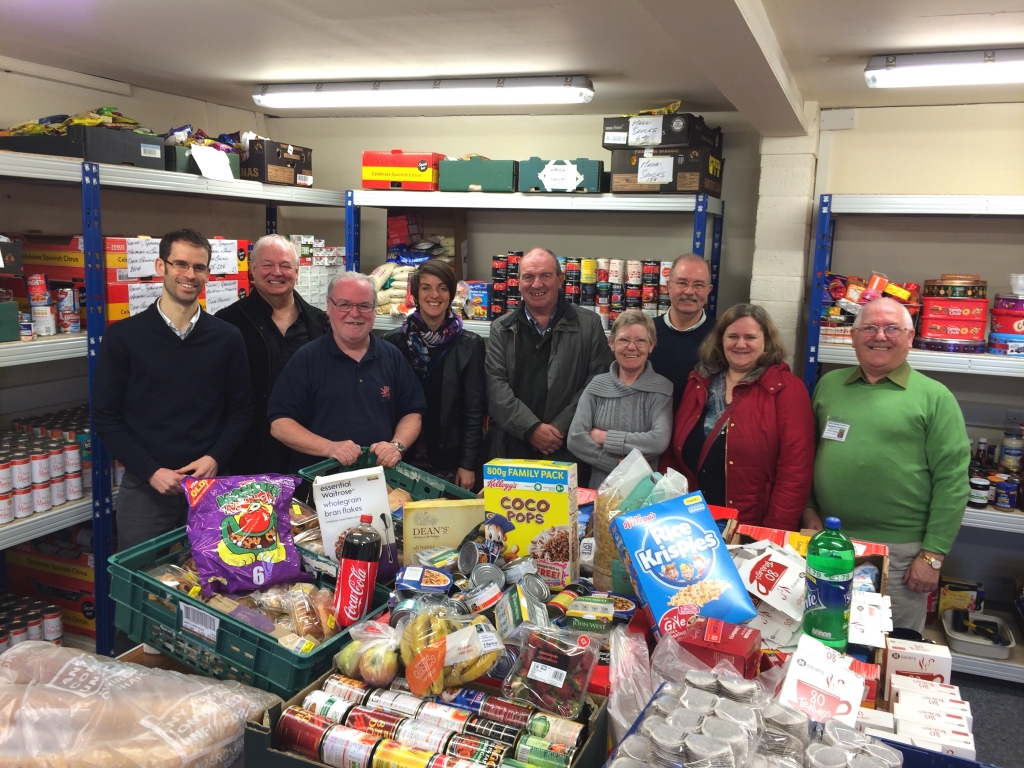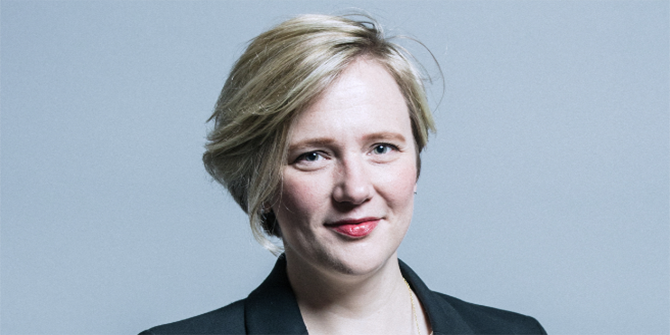 In his Budget, George Osborne claimed inequality is at its lowest level in 28 years. Yet recent research by Oxfam highlights this statement hides a more nuanced and worrying picture. Rachael Orr argues that if the Chancellor is serious about halting the growth of inequality he needs to start listening to some of the 13 million people living in poverty in the UK today.
In his Budget, George Osborne claimed inequality is at its lowest level in 28 years. Yet recent research by Oxfam highlights this statement hides a more nuanced and worrying picture. Rachael Orr argues that if the Chancellor is serious about halting the growth of inequality he needs to start listening to some of the 13 million people living in poverty in the UK today.
It’s always nice when you get some front page headlines to elicit a response that is both public and high profile from the people you’re trying to influence. Last Monday, Oxfam released a briefing A Tale of Two Britains, which showed the 5 richest families in the UK own the same as the poorest 12.6 million people. In turn, on Wednesday in his Budget, the Chancellor claimed inequality is at its lowest level in 28 years.

There are two reasons why the Chancellor can make this claim. The first is because he has front-loaded tax increases, meaning there may have a minor drop in incomes for the richest, lowering income inequality, but he has also ensured more than half of cuts to public spending are still to come, so the poorest will be experiencing greater losses in income over the coming year. And the second is that his definition of inequality only covers income inequality, not wealth inequality.
But while we might challenge the Chancellor’s definition of inequality, it’s important that he’s talking about it. As Oxfam’s paper Working for the Few outlines, we are becoming increasingly concerned about a world in which income inequality is spiralling, with wealth and power concentrated in the hands of a few, leaving the rest far behind.
Despite the upbeat tone of the Budget this week, this is all too true in the UK. On Budget day, I went to visit Foodshare, one of Oxfam’s partners working in West Dunbartonshire in Scotland (yes, Oxfam has projects in the UK as well as overseas). 26% of children growing up here are living in poverty, and blocks of the flats we drive past look set for demolition. “People are living in there, there’s nowhere else for them to go” says Danny McCafferty, local activist and chair of Foodshare.
The Foodshare service was set up by residents in response to the growing numbers of their neighbours who couldn’t afford to feed their families. It’s all run by community volunteers, and responds to local needs. After opening one outlet, they have added two more after finding that people were walking for up to two hours to get to them, unable to afford the bus fare. Volunteers are now working on developing links with local advice agencies, so that people who come to them for food don’t just get a bag of provisions to keep them going, they get help so that they might not need to rely on emergency food aid again.
That services like Foodshare exist, and are growing in number, is the evidence of an increasingly divided Britain today. Half a million people used foodbanks in the last year. And while austerity policies and welfare changes are undoubtedly increasing poverty and inequality in the UK, the problems poor communities around the county are suffering aren’t just the result of the recession. Median incomes have been in decline for 10 years in Dunbartonshire, and the loss of jobs due to the decline of industry in the 80s has never been replaced.
So what is to be done? Tackling inequality is challenging, both in ideology and action. But there are plenty of things the Chancellor could be doing to halt the growth of inequality and help some of the 13 million people living in poverty in the UK today.
Tax evasion, by companies and individuals, costs the UK economy billions of pounds every year. The ‘tax gap’ – the total amount of missing tax money the Treasury is owed – is estimated by the Government at £35 billion. Of that tax gap, Oxfam estimates that at least £5.2 billion a year is being evaded by wealthy individuals who use tax havens. Although some encouraging steps have been made to, far more must be done to clamp down on tax dodgers by improving transparency and accountability standards in tax rules and increasing government capacity to tackle tax evasion.
But it’s not just about tax evasion. We need to look at to a fairer, more progressive taxation system. The Government should implement a financial transactions tax to ensure the financial sector contributes its fair share. They should also address the fact that economic inequality is driven by wealth as much as income by exploring how to tax wealth directly, for example through a land value tax.
And then we need to focus on policy making that really targets help at the poorest. The Chancellor’s flagship policy in the Budget was the rise in the personal income tax threshold, which changes nothing for those earning under £9440. But it does help everyone earning up to £100,000 see an increase in their income.
Rather than a focus on raising the tax threshold, we need more focus on a fair social protection system to help those who are out of work or unable to work, and on policies to really make work pay. For all of the Chancellor’s talk of getting people into work to help them out of poverty, reality couldn’t be further from the truth. Poverty in real terms saw the biggest increase in a decade last year and working poverty overtook out-of-work poverty. Since 2009, the number of workers earning below a Living Wage has increased by 1.5 million to 4.8 million. Political parties have been good at talking up a living wage, now it’s time for them to outline a long-term strategy for raising the minimum wage to living wage levels, and to use tools such as government procurement to promote a living wage.
But there is something else that is critical to tackling inequality, that is beyond policies of tackling poverty and (that word politicians consider so dirty) redistribution. Extreme economic inequality is damaging because of the negative impact it has on poverty reduction and overall prosperity. But in many cases extreme economic inequality also causes unequal political representation: those with the most money are able to rig the rules, and influence government policy in their favour, often at the expense of everyone else. According to a recent Oxfam poll, more than two thirds of the British population think the rich have too much influence over where the country is headed. So if I was the Chancellor and I was serious about tackling inequality, I’d start by talking to people like Danny McCafferty and his Foodshare volunteers. It’s only by their voices and experiences having the same weight in decision making as those with spiralling wealth that we can really begin to reduce inequality in the UK.
Note: This article gives the views of the authors, and not the position of the British Politics and Policy blog, nor of the London School of Economics. Please read our comments policy before posting.
About the Author
 Rachael Orr is Head of Oxfam’s UK Poverty Programme, overseeing all the programmes Oxfam run to tackle UK poverty and leading their policy and campaigning on domestic issues. Before joining Oxfam she worked for Shelter as Campaigns Manager and London Campaigns and Public Affairs Manager, having started her career working in homeless hostels and as a support worker. She is also Chair of Trustees for Angel Shed Theatre Company, an inclusive theatre company in Islington.
Rachael Orr is Head of Oxfam’s UK Poverty Programme, overseeing all the programmes Oxfam run to tackle UK poverty and leading their policy and campaigning on domestic issues. Before joining Oxfam she worked for Shelter as Campaigns Manager and London Campaigns and Public Affairs Manager, having started her career working in homeless hostels and as a support worker. She is also Chair of Trustees for Angel Shed Theatre Company, an inclusive theatre company in Islington.






” They should also address the fact that economic inequality is driven by wealth as much as income by exploring how to tax wealth directly, for example through a land value tax.”
A LVT, isn’t technically a tax. And it certainly isn’t a tax on “wealth”.
It is a user fee that asks freeholders to pay the full market rate for the benefits they receive from their right to exclude.
Very different, morally and economically from a “tax”.
The top 1% of households own 50% of land by value. They should therefore be paying 50% of all domestic revenues to the State. They are currently paying <20%. So under a full on LVT system they would be liable for an extra £100bn per year.
Under such a system, no other taxes(other than Pigouvian sin taxes) would exist.
Therefore, people would be free to choose their own liabilities by deciding where they live. You would not be penalised for what you contribute, but only asked to pay for the benefits you receive. As measured by the market.
Not only would the slash inequality, it would also remove around 48% of deadweight costs from our economy.
Gideon George Osbornes claims and reality live on separate continents, just as his idea of how people live and the reality are different. Still can’t afford a Pint and I don’t play Bingo.